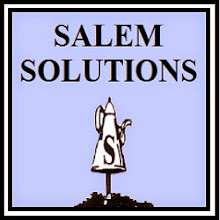4 Things
Recruiters are Tired of Seeing on Resumes
Cut
the gimmicks and focus on what you have to offer a prospective employer.
By Catherine Conlan
Monster
Contributing Writer
Recruiters look at
resumes all day long and they’ve seen it all, including quite a lot they’d
rather not see again. If you want to impress recruiters and increase your
chances of getting hired, start by eliminating these four things recruiters are
tired of seeing on resumes from yours.
Too many meaningless details
Too many meaningless details
If you think you’ll
impress people by spinning your barista work into a big deal job by using more
words to describe it, you’re mistaken, says Tracy Vistine, a lead recruiter
with the Messina Group.
Being a barista warrants no more than three bullet points, but “it is not
uncommon to see resumes for these positions with 15 bullet points.”
If you’re in the early
stages of your career, you may feel like you need to pad your resume to make it
look more impressive, says Vistine, but recruiters can see right through this.
“We often see entry-level candidates detailing bridge positions with more
enthusiasm than necessary.”
Instead, focus on what
you’ve accomplished in your jobs, not just the duties you had to fulfill each
day, says Don Tebbe, who spent 20 years recruiting executives for nonprofits
and who now focuses on exit planning. “Show me, don't tell me, the difference
you made in that job, the impact you had on the organization or the world.”
Vague dates
Vague dates
Life happens, and you
may have gaps in your employment history. But unexplained absences can be
problematic, says Abhi Trehan, recruiting consultant at McNeill Nakamoto. “About
two years ago, I started realizing a growing trend in applicants taking out the
months from their employment history, making it very vague and up to the
reader's judgment. To me, this raises an immediate red flag and makes me think
they are hiding gaps in their employment.”
Generic objective statements
Generic objective statements
Deanna Arnold, founder
of The People’s HR,
says the objective statement must go, because the information it shares is
already obvious. “Here is what everybody puts as their objective: To find a
position in a dynamic and growing company to fully utilize my years of skills
and experience.”
An objective statement
doesn’t talk about your skills and experience, nor does it set you apart,
Arnold says. And finally, “It is obvious that you are looking for a job,
otherwise you wouldn't have applied.”
Mark Slack, career
adviser and hiring manager at Resume Genius, says it’s not the objective statement that’s
the problem it’s that people don’t do a good job of writing theirs. “No one
wants to read a brief sentence from an applicant about how he or she would like
a job in your company.” But a well-constructed career objective can make you
stand out.
“A good career objective
allows a candidate to briefly describe the main skills, qualifications, and
experiences that make them an excellent candidate to forward the company's
goals,” Slack says.
“References available on request”
This line just isn’t necessary, says Julie Desmond, an IT and software recruiting manager at George Konik Associates. “I have yet to see a resume that says, ‘No references available, no matter how much you beg.’”
“References available on request”
This line just isn’t necessary, says Julie Desmond, an IT and software recruiting manager at George Konik Associates. “I have yet to see a resume that says, ‘No references available, no matter how much you beg.’”
You can always include
references with your application from the beginning, but if you don’t and the
recruiter or company you’re applying to wants them, they’ll ask.

No comments:
Post a Comment